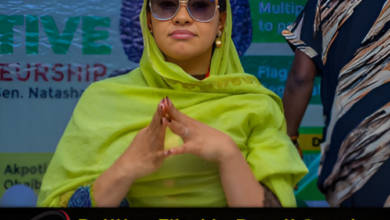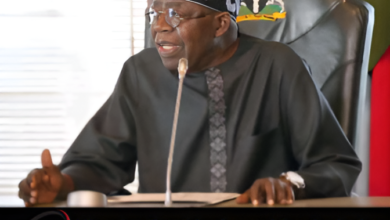Emeka Anyaoku Tells Presidency to get rid of 1999 constitution for the growth of Nigeria

Chief Emeka Anyaoku, a former Commonwealth Secretary-General, issued a warning on Wednesday that it would be difficult for anyone to reform Nigeria if the country refused to repeal the 1999 Constitution.
Advertisements
According to him, Nigeria is a pluralistic nation that requires truly federal constitutions to accommodate its diversity.
“To those who think that the trouble with Nigeria today is the political leadership, I would say that as long as we have the 1999 Constitution as our grundnorm, not even Angel Gabriel or Malaikah Jibrin as leaders can successfully tackle the divisiveness, the underperforming economy with the resultant poverty, the insecurity, the humongous corruption, and the other major challenges currently facing Nigeria,” he said.
The Nigerian Institute of International Affairs, located on Victoria Island in Lagos, hosted the book launch of “The Noble Academic and Patriot: A Biography of Emeritus Professor Akinjide Osuntokun,” where the elder statesman gave a speech.
“I start from the clearly undeniable fact that Nigeria, like many other countries across the world, is a pluralistic country, that is, a country whose population consists of groups of peoples long established in their separate geographical areas with different histories, cultures, languages and religions.
“The universal lesson is that pluralistic countries which have survived as single political entities in unity and progress are those that addressed their pluralism, that is their diversity, with genuine federal constitutions. Examples of such countries are India, Canada and Switzerland.
“I believe, therefore, that if our pluralistic Nigeria is to achieve true unity and political stability, and to successfully tackle the serious challenges that the country currently faces, it must have a truly federal constitution,” the elder statesman stated.
Anyaoku, who praised Osuntokun, recounted how the esteemed professor supported him throughout his campaign for the Commonwealth’s Secretary General post.
He said “I first knew of Jide Osuntokun when he was Adviser to Nigeria’s Foreign Minister, General Ike Nwachukwu, and accompanied the Foreign Minister in his journeys to campaign for my candidacy for the office of Commonwealth Secretary-General.
“I was then running against the man who had been the Prime Minister of Australia for seven and a half years.”
He claimed that Osuntokun is not only a successful scholar but also a patriot who was duly honoured by the esteemed Hallmarks of Labour Foundation last year by receiving an award bearing the title HLF, which denotes a role model for our youth on how to succeed via perseverance and moral character.
Dr. Kayode Fayemi, the book reviewer and a former governor of Ekiti State, detailed how Osuntokun approved the biography in 2021 even though the authors had come up with the idea in 2018.
Fayemi walked the guests through the professor’s family history, which included his academic and personal lives as chronicled by the writers.
“The authors informed us that the book project was conceived in 2018 after Prof Osuntokun served as Pro-Chancellor and Chairman of the Council of the Ekiti State University, Ado-Ekiti. Prof Osuntokun graciously authorised the biography in 2021 by granting the authors extensive interviews and two virtual interviews in addition to providing access to his library and archives.
“The book manuscript, in nine crisp and concise chapters, with three appendices, started in the first chapter by tracing the genealogy of Prof Osuntokun.
“The authors provide extensive evidence of family history, entrepreneurial acumen and pacesetting influence in the community to explain the values and attributes we later associate with Professor Osuntokun.
“The chapter covered in great detail the struggles, his bold forbearance waged in the course of establishing a clan in Oke-Mesi and their involvement in the federating military of Ekiti and Ijesa against the rampaging Ibadan army in the Kiriji war.
“Another of his forebears had fought in the First World War on the side of the British. His own father had gone in pursuit of the Golden Fleece, as far afield as the mines of Ghana, and became a wealthy itinerant trader, all the while his employers returned from Ghana, in the course of which he married his mother, and settled the family in Ilawe-Ekiti.”









